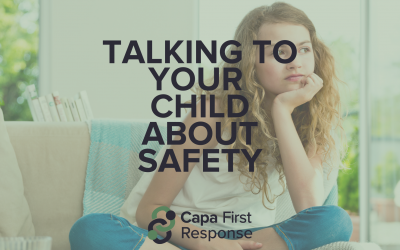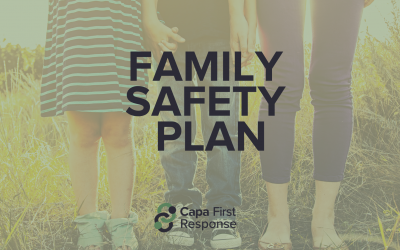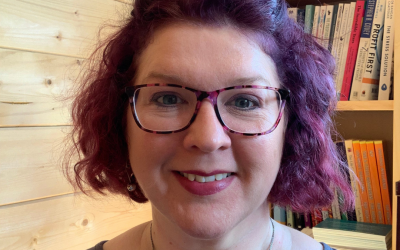𝗬𝗲𝘀𝘁𝗲𝗿𝗱𝗮𝘆, 𝗝𝗮𝗻𝗲 𝗵𝗮𝗱 𝘁𝗵𝗲 𝗵𝗼𝗻𝗼𝘂𝗿 𝗼𝗳 𝗯𝗲𝗶𝗻𝗴 𝗶𝗻𝘃𝗶𝘁𝗲𝗱 𝘁𝗼 𝘁𝗵𝗲 𝗛𝗼𝘂𝘀𝗲 𝗼𝗳 𝗖𝗼𝗺𝗺𝗼𝗻𝘀 𝘁𝗼 𝗷𝗼𝗶𝗻 𝗝𝗲𝘀𝘀𝗶𝗰𝗮 𝗕𝗼𝗻𝗱𝘆 𝗮𝗻𝗱 𝗵𝗲𝗿 𝗰𝗵𝗮𝗿𝗶𝘁𝘆 𝗪𝗼𝗿𝗱𝘀 𝗠𝗮𝘁𝘁𝗲𝗿, 𝗳𝗼𝗿 𝗮 𝗱𝗶𝘀𝗰𝘂𝘀𝘀𝗶𝗼𝗻 𝗼𝗻 𝘁𝗵𝗲 𝗜𝗺𝗽𝗮𝗰𝘁 𝗮𝗻𝗱 𝗣𝗿𝗲𝘃𝗲𝗻𝘁𝗶𝗼𝗻 𝗼𝗳 𝗖𝗵𝗶𝗹𝗱𝗵𝗼𝗼𝗱 𝗩𝗲𝗿𝗯𝗮𝗹 𝗔𝗯𝘂𝘀𝗲 𝗯𝘆 𝗔𝗱𝘂𝗹𝘁𝘀. 𝗧𝗵𝗲 𝗲𝘃𝗲𝗻𝘁 𝘄𝗮𝘀 𝘀𝗽𝗼𝗻𝘀𝗼𝗿𝗲𝗱 𝗯𝘆 𝗦𝗵𝗮𝗿𝗼𝗻 𝗛𝗼𝗱𝗴𝘀𝗼𝗻 𝗠𝗣. 𝗛𝗲𝗹𝗱 𝗶𝗻 𝗖𝗼𝗺𝗺𝗶𝘁𝘁𝗲𝗲 𝗥𝗼𝗼𝗺 𝟭𝟭, 𝘁𝗵𝗲 𝗿𝗼𝗼𝗺 𝘄𝗮𝘀 𝗳𝗶𝗹𝗹𝗲𝗱 𝘄𝗶𝘁𝗵 𝗿𝗲𝗽𝗿𝗲𝘀𝗲𝗻𝘁𝗮𝘁𝗶𝘃𝗲𝘀 𝗳𝗿𝗼𝗺 𝗮𝗰𝗿𝗼𝘀𝘀 𝘀𝘁𝗮𝘁𝘂𝘁𝗼𝗿𝘆 𝘀𝗲𝗿𝘃𝗶𝗰𝗲𝘀 𝗮𝗻𝗱 𝘁𝗵𝗲 𝘁𝗵𝗶𝗿𝗱 𝘀𝗲𝗰𝘁𝗼𝗿.
It was incredibly heartening to witness unanimous agreement from both the panel and the audience: the language we use with children has a profound and lasting impact. Verbal abuse in childhood is linked to long-term consequences such as depression, anxiety, suicidal ideation, and difficulties in forming healthy relationships.
At Capa First Response, we are acutely aware of how harmful labels such as violent, complex, challenging, abusive, perpetrator, and others can negatively affect the parent-child relationship. These labels not only shape how children see themselves, but they also influence how professionals perceive and treat them, often normalising the language and contributing to damaging, self-fulfilling prophecies.
Many of us can recall a time when a label (either positive or negative) left a lasting mark on us. As we were reminded by Professor Eamon McCrory, a member of the panel, “It only takes one adult to counteract the negativity and help a child build the resilience they need to reach their potential.”
𝗧𝗼𝗱𝗮𝘆, 𝗹𝗲𝘁’𝘀 𝗰𝗵𝗼𝗼𝘀𝗲 𝘁𝗼 𝗯𝗲 𝘁𝗵𝗮𝘁 𝗮𝗱𝘂𝗹𝘁.


